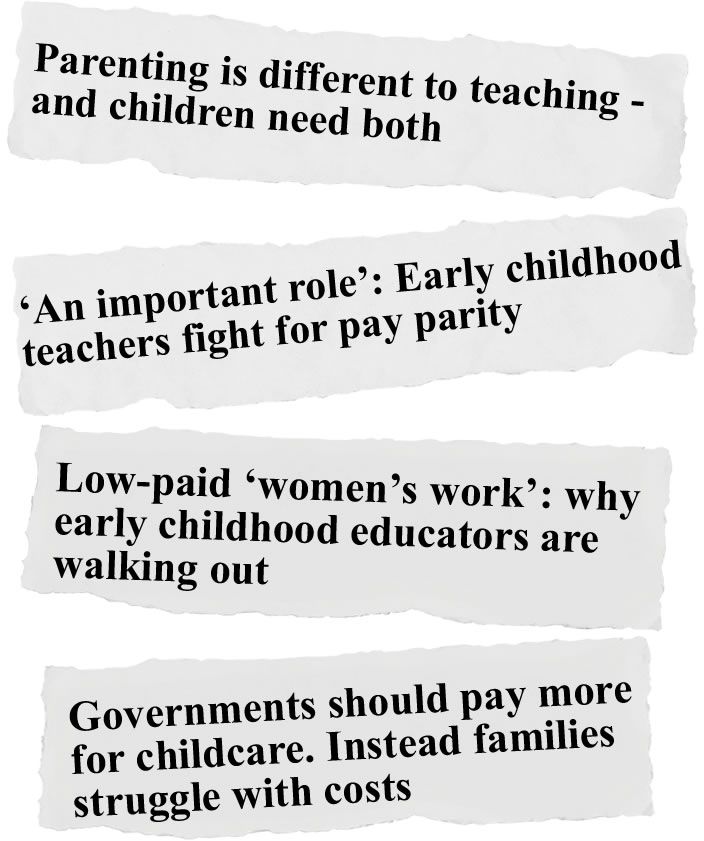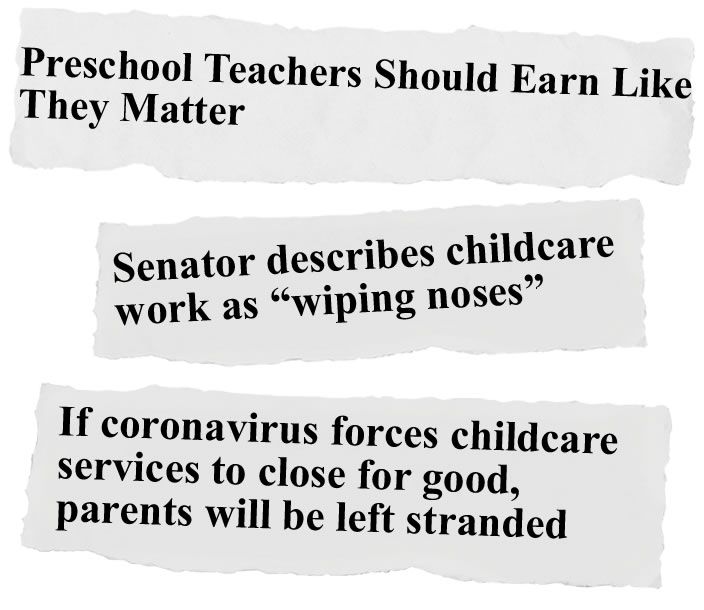Examining a selection of media depictions of the sector illustrates the double standard to which this crucial workforce is subjected. Workers in early childhood education and long day care centres know this hypocrisy and inequality all too well.
Despite being university trained, early childhood teachers have been systematically underpaid and often under appreciated, with the predominantly female workforce dismissed as glorified babysitters, child minders and nappy changers. The sector has been criticised in contradictory terms: ineffective yet crucial; unskilled yet requiring a university degree; crucial to the economy yet undeserving of fair pay.
Suddenly essential
Yet when the pandemic struck and Australia (rightly)ground to a halt, early childhood teaching was an“essential service”. All of a sudden, they were not only fundamental to a child’s education and development and therefore a sound investment in Australia’s future economy, they were also central to the nation’s immediate economic viability, educating children while their parents worked.
Early childhood teachers require university qualifications just like teachers in any other contexts but, in many settings, they are paid less. Employers and governments alike have tried to diminish the professional standing of early childhood teachers, saying their work is not as valuable as that of teachers in primary schools or high schools. We do not support this view: the IEU strives to achieve fair and decent wages, dignity and respect for all teachers in all contexts.
Plain speaking and platitudes
As the pandemic began unfolding in March, Shadow Treasurer Jim Chalmers acknowledged the crucial role of the sector and the stresses it was under. “Clearly one of the most impacted parts of the economy will be the childcare sector,” he said. “This situation is urgent in childcare and it needs to be fixed as a matter of priority.”
Platitudes abound from politicians, media pundits and commentators, praising the vital work of our newly minted “essential workers”. Some say the virus is an awakening, that governments now value these under appreciated, underpaid and under represented professions. But we are also hearing impatient calls for the world to return to“normal”, for our lives to go back to the way things were pre-coronavirus.
We all eagerly await the chance to visit our friends safely again, to go to the movies, or out for lunch. But to allow Australia’s society and economy to “snap back” to its previous structure of corrosive inequality, exploitation and class stratification, would be a tragedy.
The virus, and the shock to our economy it has incurred, provides a brief window of opportunity to stand up and assert the value, skill and dignity of the early childhood sector. And while we’re at it, that of the hospitality, arts, retail, nursing and the broader education sector.
IEU supports you
The IEU continues to fight for equitable salaries for our members in early childhood education through our enterprise bargaining and in the IEUA NSW/ACT Branch’s landmark pay equity case. We call on the government to commit to properly funding early childhood education – extending beyond its stopgap pandemic measures.
Change only happens if we make it happen, and we are determined to continue on our way to creating this change.
Fair pay. Security. Respect. A safe place to work. These are crucial as we emerge into a post COVID-19 world. Otherwise, all the words sung out in praise of early childhood teachers will have been just that: words.




































































































































